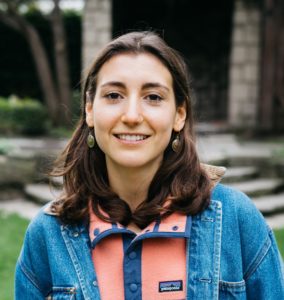Join this month for a chance to win 1 of 3 pairs of AirPods. Join now
Attend a free online retirement planning workshop. Register
Join this month for a chance to win 1 of 3 pairs of AirPods. Join now
Attend a free online retirement planning workshop. Register
Dr. Paula Rochon holds a number of impressive positions with several prestigious organizations and institutions. We know her best as the RTOERO Chair in Geriatric Medicine at the University of Toronto. But for a very special group of student trainees, she is not only a professor but also a mentor. Every year, Dr. Rochon accepts a small number of students into the Women’s College Hospital trainee program. These trainees are the future of geriatric medicine.
In this four-part series, we will introduce you to these innovative minds and give you a sneak peek at their research initiatives and the role Dr. Rochon plays in each of their careers and the essential role she fulfills as a teacher and mentor. We’ll find out what inspires these interns to pursue the field of geriatrics and where their future aspirations lie.
Although older women represent more than 70% of nursing home residents, the design of nursing homes often completely neglects older women’s specific needs. We explored how nursing home designs that fail to consider older women can impact these women’s health and well-being. We then researched how nursing homes can be designed with older women in mind, by learning about the design preferences of older women from examples available in other congregate care settings. We need to be building nursing homes that are socially integrated, accessible and located in age-friendly, vibrant communities so residents are not socially isolated by design.

I’m going into third-year medical school. The top three areas that interest me the most so far are family medicine, internal medicine and psychiatry. Each of these specialties provides an opportunity to specialize and work with older adults. As a family physician, I could take extra training to learn how to care for the express needs of older adults. Internal medicine is the first step in becoming a geriatrician and in the specialty of psychiatry, I could focus specifically on geriatric psychiatry.
Yes, definitely. Dr. Rochon is an influential mentor. Her mentorship ultimately influenced my decision to pursue medicine, and it is one of the reasons why I want to work with older adults in my future practice.
I started working with Dr. Rochon at the beginning of my undergrad studies. I knew that I was interested in health care and research. Seeing the way Dr. Rochon uses her clinical expertise and research to advocate for older adults changed what I thought you could do in health care. I thought you had to choose either research or clinical practice. The way she integrates both disciplines to promote a more equitable health care system was really influential in my decision to follow a path in medicine. Dr. Rochon gives her students the opportunity to explore their own interests. She views her students’ unique perspectives and diversity as an area of strength. I had an interest in design, urban planning and architecture, and that has been reflected in the work I’ve been able to do with Dr. Rochon. Dr. Rochon gave me the space and support to explore my interests, and that’s quite rare in some research fields.
My goal is to be a physician and help patients first-hand and at the same time, advocate for a more equitable health care system.
Enjoy the research. Embrace your unique perspectives, interests and experiences. There is strength in diversity of focus and opinions. We need people new and different things because that’s how we generate change and breed innovation.
Read part 1: Keshini Sriarulnathan – The impact of ageism during COVID-19: a survey of retired members of the education community
Read part 2: Joshua Tuazon and Nickrooz Grami – Promoting healthy aging in older women: A call to action
Read part 4: Parya Borhani – Exploring the role of implicit gender bias among physicians on prescribing cascades in older adults